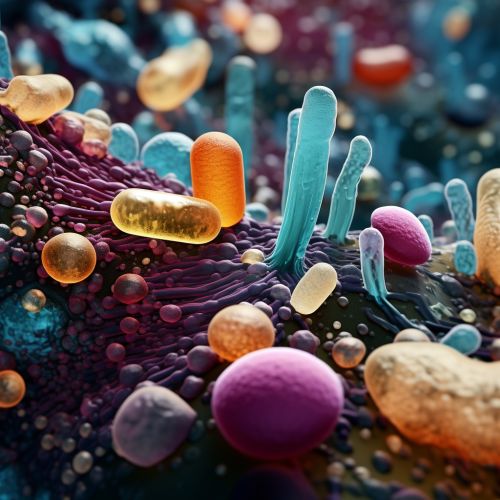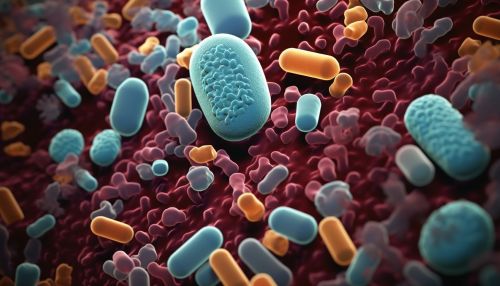Microbial Genetics
Introduction
Microbial genetics is a branch of genetics concerning the study of how genes function in microorganisms, including bacteria, archaea, viruses, and some fungi and protozoa. This field of study is fundamental to understanding how these tiny organisms adapt to their environments, resist antibiotics, and cause disease.


History of Microbial Genetics
The field of microbial genetics began in the mid-20th century, with the discovery of deoxyribonucleic acid (DNA) as the genetic material. This discovery was made possible by the work of several scientists, including Oswald Avery, Colin MacLeod, and Maclyn McCarty, who demonstrated that DNA is the substance that causes bacterial transformation, a process where genes are transferred from one bacterium to another.
Microbial Genome
The genome of a microorganism is its entire genetic material. This includes its genes and the non-coding sequences of its DNA. Microbial genomes are incredibly diverse, ranging from thousands to millions of base pairs in size. The smallest microbial genomes belong to viruses, while the largest are found in some bacteria and fungi.
Gene Expression in Microorganisms
Gene expression in microorganisms is a complex process that involves the transcription of DNA into ribonucleic acid (RNA) and the translation of RNA into proteins. These proteins then carry out various functions within the cell. The regulation of gene expression in microorganisms is a critical area of study in microbial genetics, as it is key to understanding how these organisms respond to changes in their environment.
Genetic Variation and Evolution in Microorganisms
Microorganisms exhibit a high degree of genetic variation, which is a key driver of their evolution. This variation arises through several mechanisms, including mutation, recombination, and horizontal gene transfer. These processes allow microorganisms to adapt to new environments, evolve resistance to antibiotics, and develop new metabolic capabilities.
Microbial Genetics and Disease
Microbial genetics plays a critical role in understanding infectious diseases. By studying the genetics of pathogens, scientists can understand how these organisms cause disease, how they interact with the host's immune system, and how they evolve resistance to antibiotics. This knowledge is crucial for the development of new treatments and vaccines.
Techniques in Microbial Genetics
There are several techniques used in microbial genetics, including DNA sequencing, polymerase chain reaction (PCR), and genetic engineering. These techniques allow scientists to study the genetic material of microorganisms in detail, identify genes that are important for their survival and growth, and manipulate their genomes for research purposes.
Future Directions in Microbial Genetics
The field of microbial genetics continues to evolve, with new technologies and approaches being developed. These include next-generation sequencing, which allows for the rapid and cost-effective sequencing of microbial genomes, and synthetic biology, which involves the design and construction of new biological parts, devices, and systems.
